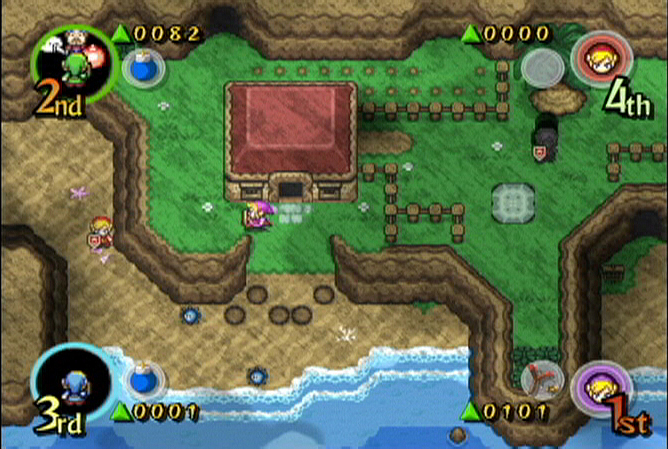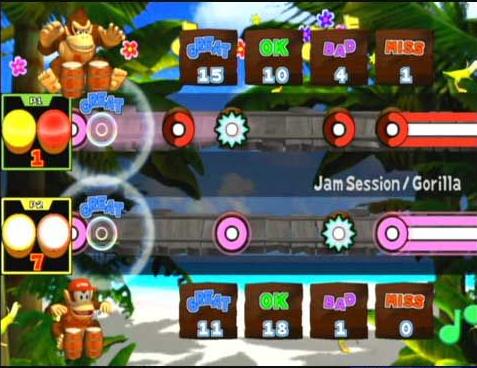
Nintendo's library of franchise video game characters is unmatched. Mario platformers and the Zelda adventure series are perennial favorites regardless of what system they are released on. While Super Mario Sunshine and The Wind Waker may have been disappointing in some respects, the first-person revamp of the Metroid series more than made up for it. Samus Aran's makeover in Metroid Prime was an undisputed system seller. Unfortunately, none of these games included co-op. Fans of co-op in the popular Nintendo franchises would have to wait a few years into the GameCube's lifespan.
As the GameCube aged, all manner of quirky, experimental titles were developed for it. Perhaps the best of these, from a co-op point of view, was the GameCube/Game Boy Advance cable. This cable allowed the Game Boy Advance to connect to the GameCube as a controller with a secondary screen. The Legend of Zelda: Four Swords Adventures took this concept and ran with it. Adapting and enhancing the side adventure from the Link to the Past GBA port, Four Swords Adventures was brilliant, with four different Links working together on a quest through two worlds. Teamwork and special formations were essential to solving puzzles and overcoming boss fights. It's one of the better co-op games I've ever played, and now that it's available (free!) for the 3DS, there's no excuse not to enjoy this gem.

But Link wasn't be the only Nintendo star to embrace co-op on the GameCube with an odd accessory. Donkey Konga, with its bongo-shaped controllers, allowed two-player co-op in story mode, or up to four in song mode. This was in the prehistory of the music game genre, before even the first Guitar Hero was released. The intuitive control scheme was very easy to learn, even for non-gamers. Though it didn't require any special equipment, Mario Kart Double Dash!! allowed co-op in a racing game, which is unusual enough. One player could drive while the other used items to disrupt the other racers. The implementation wasn't ideal for veteran gamers, but it was a precursor to the young player-friendly co-op in Super Mario Galaxy and other similar titles.
Sadly, in the previous gen console wars, the GameCube came in a distant third, behind Sony's Playstation 2 and the Xbox. Third party support wasn't nearly as strong for Nintendo's purple lunchbox, which was undoubtedly a factor. However, Nintendo's success with games like Four Swords Adventures and Donkey Konga would lead them to think far outside the box with the GameCube's follow-up, the Wii. That system would build on all the casual-player friendliness of the GameCube and head to the top of the sales charts. Perhaps the GameCube wasn't a financial gold mine, but it paved the way for the Wii, which made Nintendo relevant to the video game industry once again.